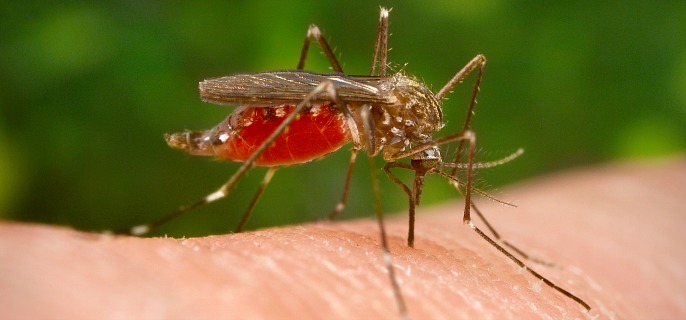
Recent positive tests for West Nile Virus in mosquitoes and horses in Umatilla County have county officials urging residents to take the necessary steps to reduce their exposure to mosquitoes.
The West Umatilla Mosquito Control District is reporting that West Nile virus has been detected in at least 23 mosquito samples this year. In addition, two horses have also tested positive in the last week. Both horses were in the Umatilla area and not vaccinated for West Nile virus.
Because horses are also at risk for West Nile virus, health officials encourage horse owners to check with their veterinarians for vaccination. Veterinarians can arrange for testing of samples from horses suspected of infection with West Nile virus.
West Nile virus is primarily a bird disease, and some birds, including magpies, blue jays and crows are especially susceptible. Mosquitoes become infected by feeding on an infected bird and can pass the virus to humans, horses or other hosts when they bite. The public is encouraged to continue to alert district officials when they come across dead birds, so the district can track the spread of the virus.
Residents in the area can expect to see a continued mosquito control in the area. The District will be conducting targeted aerial mosquito control spraying over Labor Day weekend in areas that have high levels of the virus.
Community members are encouraged to take appropriate precautions to protect themselves against mosquito bites. Most people who become infected with West Nile virus do not become ill. Some may develop mild flu-like symptoms such as fever, headache, body aches, and occasionally swollen lymph glands or a rash. In rare cases, West Nile virus may cause encephalitis, or inflammation of the brain. Individuals with severe or unusual headaches should seek medical care as soon as possible. Residents of the district should remain vigilant in protecting themselves from mosquitoes and the diseases that they can carry, such as West Nile virus.
Here are some suggestions to reduce the risk of exposure to West Nile:
- Get rid of old tires and other containers where water can accumulate and serve as a breeding ground for mosquitoes.
- Flush or replace the water in horse troughs weekly.
- Be sure to flush or add mosquito fish to ornamental ponds.
- Avoid outdoor activities at dusk and dawn when mosquitoes are most active.
- Wear long-sleeved shirts and long pants when in mosquito infested areas.
- Use mosquito repellents containing DEET, making sure to follow the directions on the container.
- Screen doors and windows.
- Report mosquito infestations and dead bird sightings to the West Umatilla Mosquito Control District (541) 567-5201








